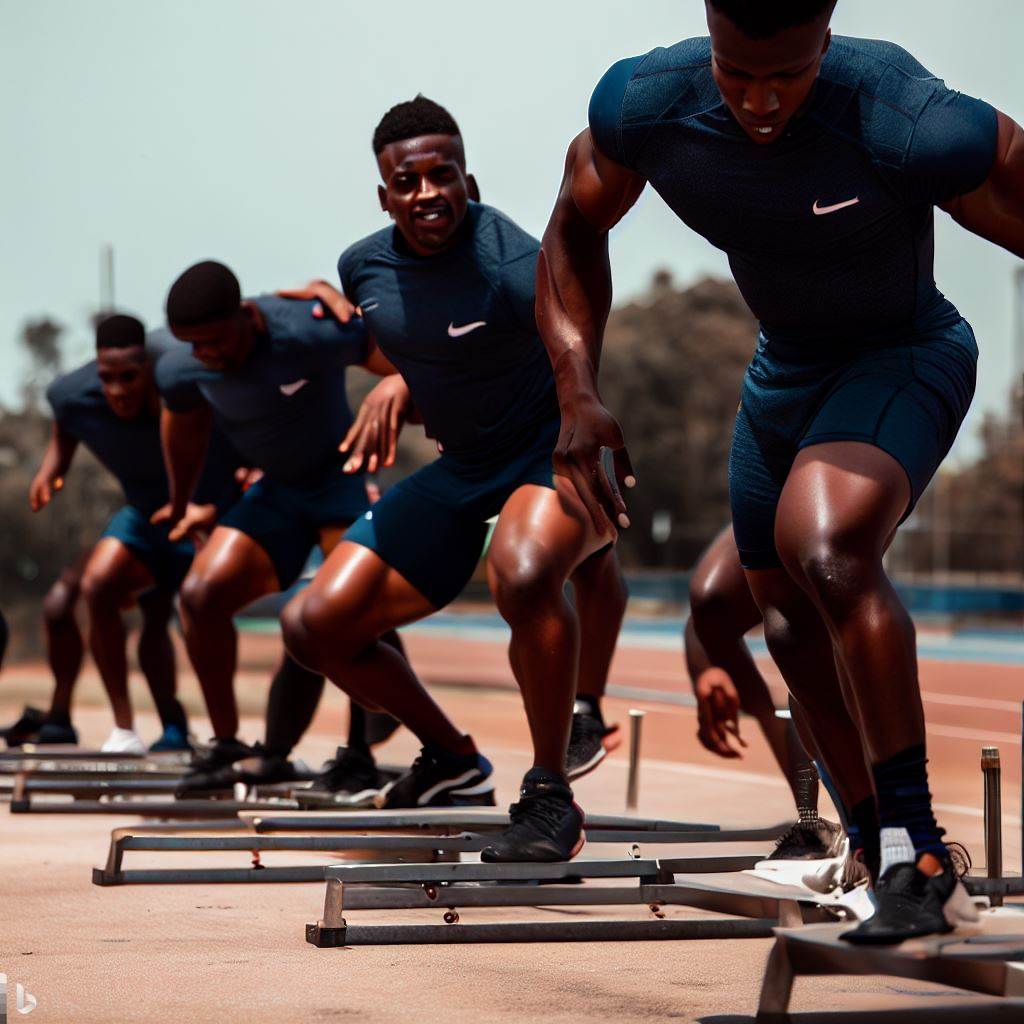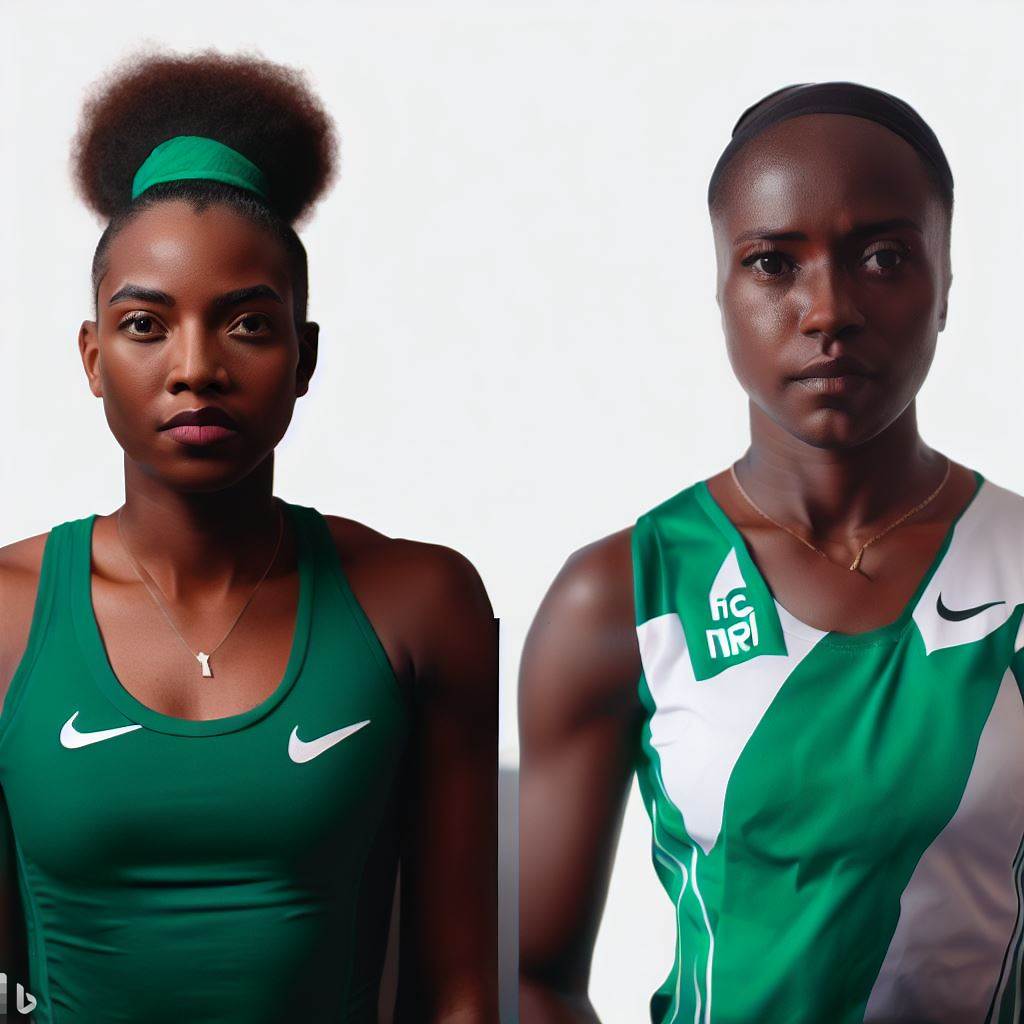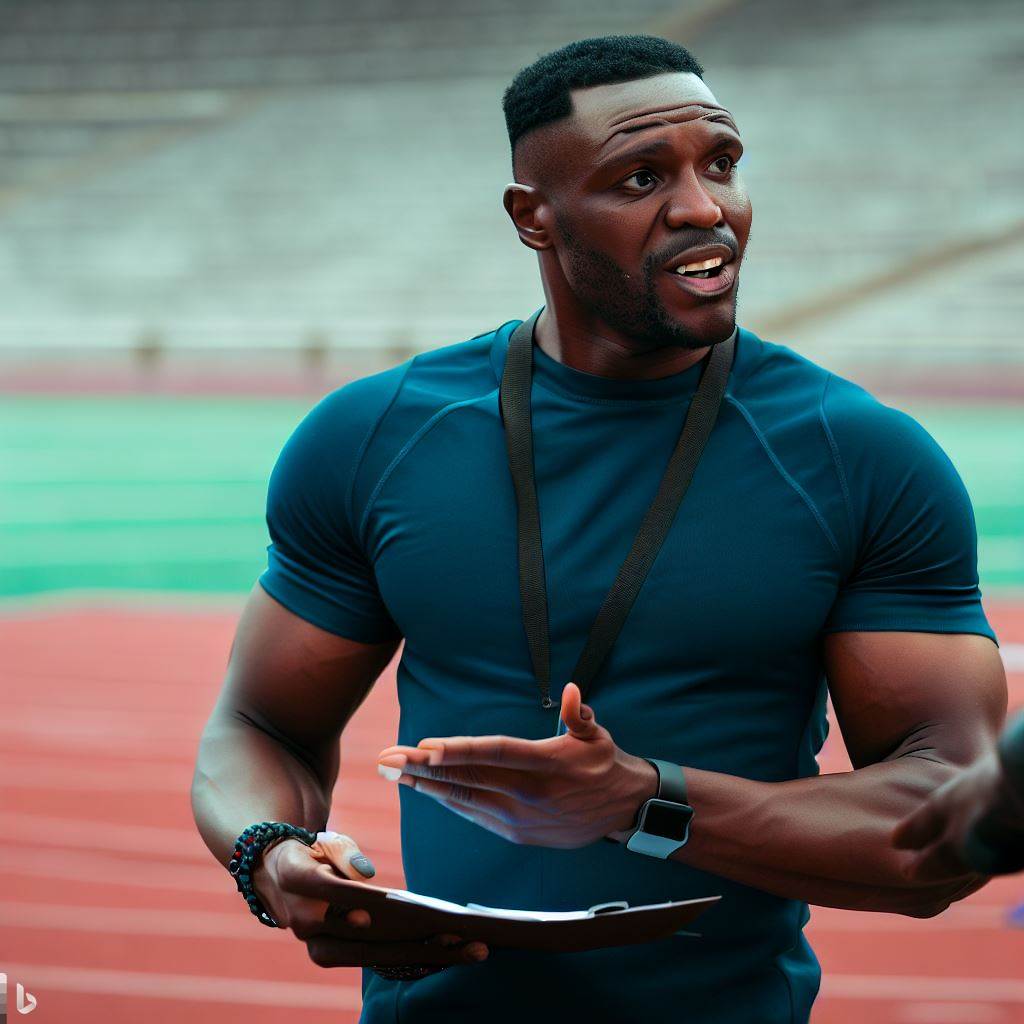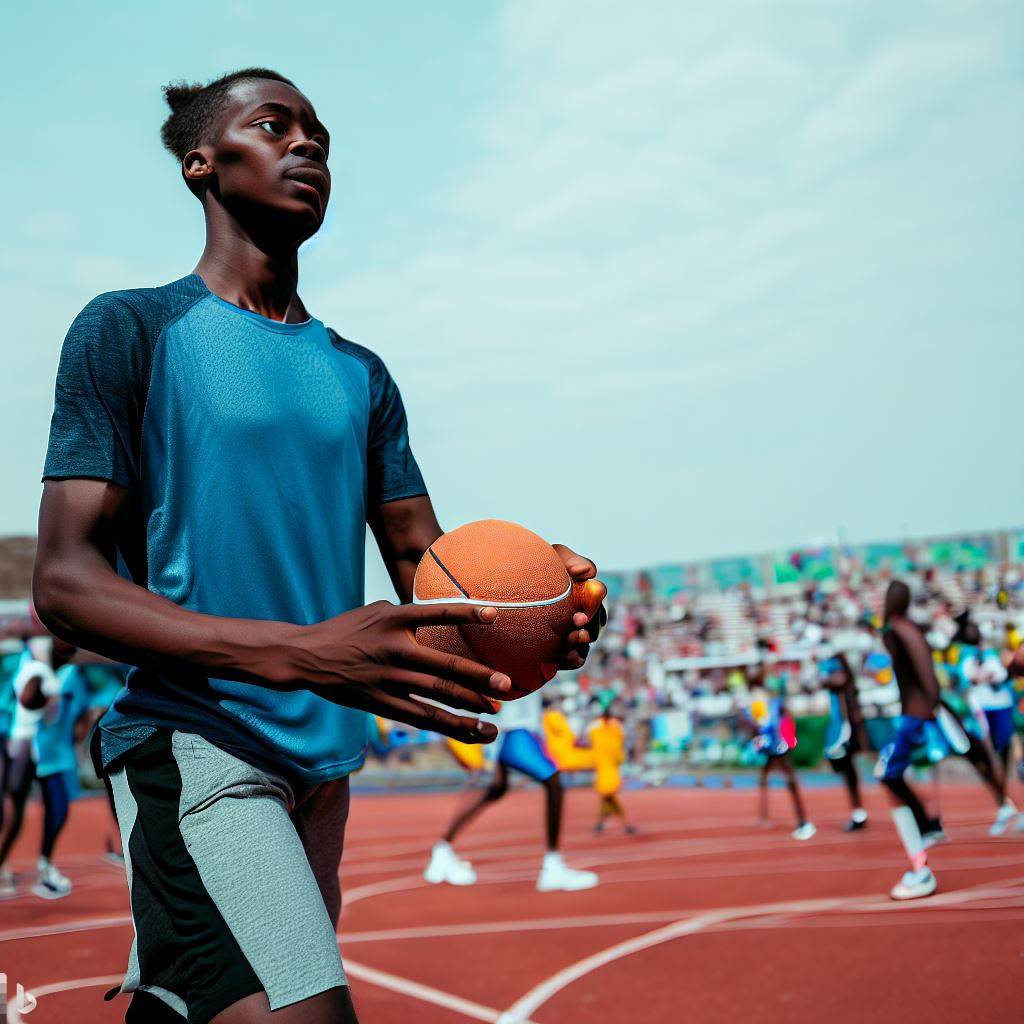Introduction
Athletic sports, whether at amateur or professional levels, require rigorous training programs for athletes to achieve success.
These programs not only help in molding the athletes physically but also have a significant impact on their overall mental and emotional well-being. With the ever-increasing demand for sporting excellence, the need for effective training programs cannot be overemphasized.
Explanation of the importance of training programs for athletes
Training programs for athletes are essential as they provide a structured and optimal approach to prepare them for competitions. Proper training programs help athletes develop specific skills, techniques, and physical attributes that are necessary for their respective sports.
These programs also aid in preventing injuries and assist athletes in managing their health and fitness.
A well-designed training program can significantly improve an athlete’s performance and confidence, making them better prepared for competition.
Brief overview of the current state of training programs in Nigeria
Nigeria has some of the most talented athletes in the world, but the current state of training programs in the country is far from optimal.
The lack of adequate funding, facilities, and qualified coaches has hindered the development of world-class training programs.
Most aspiring athletes in Nigeria receive sub-standard training or none at all, which has led to a reduction in the number of elite athletes emerging from the country. Nigeria requires better infrastructure to facilitate the design and implementation of effective training programs that will unleash the full potential of its athletes.
Read: The Economic Impact of Sports in Nigeria
Current State of Training Programs in Nigeria
Training programs for aspiring athletes in Nigeria are facing several challenges that hamper their ability to produce world-class athletes. These challenges include:
- Lack of Funding: One of the major issues plaguing training programs in Nigeria is the lack of adequate funding. Most training programs rely on government funding, which is often not enough to cover all the expenses required to produce top-tier athletes.
- Inadequate Facilities: Another challenge faced by training programs in Nigeria is the lack of adequate facilities. Many programs do not have access to modern training equipment, fields, or courts, which negatively impacts the quality of training athletes receive.
- Insufficient Coaching Staff: Most training programs in Nigeria suffer from a shortage of qualified coaches. This problem is compounded by the fact that many coaches also lack access to proper training and certification programs, which limits their ability to impart the necessary skills to their trainees.
- Absence of a Structured System for Athlete Development: One of the biggest issues facing training programs in Nigeria is the lack of a structured system for athlete development. Without a clear pathway for athletes to progress through the different stages of development, it becomes challenging to identify and support the most talented athletes, leading to a lack of continuity in the development of athletes.
These issues have significantly impacted Nigeria’s ability to produce world-class athletes who can compete at the highest levels.
Training programs in Nigeria must address these issues to create a more conducive environment that can better support the development of aspiring athletes.
How Can These Challenges Be Addressed?
There are several steps that training programs in Nigeria can take to address the challenges they face:
- Increased Funding: Getting more funding from the government and private entities will help to solve the issue of inadequate funding. This increased funding can be used to provide better training equipment, facilities and remuneration for qualified coaches.
- Improved Facilities: Providing better facilities is necessary to support the physical development of athletes. Modern equipment and adequate facilities will help to ensure that athletes receive high-quality training, which will lead to better performance.
- Increase in Coaching Staff: Reducing the coaching staff shortage by employing more qualified coaches will ensure that trainees receive the guidance and support they need to develop their skills adequately.
- Structured System for Athlete Development: Creating a structured system for athlete development, similar to those found in other countries, will help to identify and support talented athletes. There should be an emphasis on focusing on athletes at a young age, providing them with adequate support, and ensuring continuity in their development.
The Benefits of Improving Training Programs
Improving training programs in Nigeria will provide several benefits, including:
- Improved Performance: With better training, facilities, and support, athletes will have the resources to improve their performance and compete at the highest levels.
- Increased Visibility and Recognition: Better-performing athletes will help to raise the profile of Nigerian sports in the international sporting scene, leading to increased visibility and recognition for the country.
- Development of More Professional Athletes: A well-structured and well-funded athlete development system will lead to the development of more professional athletes with the potential to earn recognition on a global scale, bringing greater pride and prestige to Nigeria.
Significant challenges face training programs for aspiring Nigerian athletes, reflected in the lack of top-performing athletes in international events.
By addressing funding shortages, enhancing facilities and coaching staff, and establishing a structured athlete development system, Nigerian athletes can better compete internationally and bring glory to the nation.
Read: Inspiring Stories of Successful Nigerian Athletes
Key Components of Effective Training Programs for Aspiring Athletes in Nigeria
For aspiring athletes in Nigeria, effective training programs are crucial for achieving success in their respective sports. These programs should include several key components:
Access to Quality Facilities and Equipment
Athletes need access to quality facilities and equipment to perform at their best. Training facilities should be well-maintained, clean, and safe.
Equipment should be up-to-date and in good condition. Inadequate facilities and equipment can hinder an athlete’s progress and increase the risk of injury.
Experienced and Well-Trained Coaching Staff
The coaching staff plays a significant role in the development of aspiring athletes. Coaches should possess extensive knowledge of their sport and be able to effectively teach and communicate with their athletes.
They should also have experience working with athletes at various skill levels and be able to tailor their coaching to meet individual needs.
Integrated Athlete Development Plan with a Focus on Nutrition and Injury Prevention
Effective training programs should have a comprehensive athlete development plan that includes nutrition and injury prevention.
Athletes require proper nutrition to fuel their bodies and provide the necessary energy for training and competition.
Injury prevention strategies play a crucial role in an athlete’s success, preventing disruptions to progress and career-ending possibilities.
Exposure to Competition at the National and International Level
Exposure to competition is essential for aspiring athletes to develop and improve their skills.
Competing at national and international levels gives athletes valuable experience and helps benchmark progress against top performers.
Exposure to competition also helps athletes become more confident in their abilities and better prepares them for future success.
Essentially, aspiring Nigerian athletes need effective training programs that offer access to quality facilities and equipment, experienced coaching staff, an integrated development plan with a focus on nutrition and injury prevention, and exposure to national and international competitions.
With these key components, aspiring athletes in Nigeria can reach their full potential and achieve success in their respective sports.
Read: Nigeria’s National Sports Policies: An In-Depth Review

Successful Training Programs in Nigeria
Nigeria’s rich history includes producing world-class athletes in football, track and field, basketball, boxing, and more. Their success results from quality training programs that help hone their skills and reach full potential.
In this chapter, we will discuss some of the successful training programs for aspiring athletes in Nigeria.
The MFM Football Academy
The MFM Football Academy is one of the most successful football academies in Nigeria.
Founded in 2007 by the Mountain of Fire and Miracles Ministries, the academy is dedicated to the development of young and talented football players.
The academy provides a comprehensive training program that includes technical, tactical, physical, and psychological aspects of the game.
The MFM Football Academy is known for producing some of Nigeria’s top football talents such as Stephen Odey, Sikiru Olatunbosun, and Chukwuka Onuwa.
The Top Sprinters Academy
The Top Sprinters Academy is a track and field training program that focuses on developing young athletes in the sprint events. The academy was founded by former Nigerian sprinter, Endurance Ojokolo, and has since produced numerous national and international champions.
The program offers a variety of training routines such as plyometric workouts, weight lifting, and track drills to improve speed, agility, and endurance.
Notable athletes who have trained at the Top Sprinters Academy include Blessing Okagbare, Divine Oduduru, and Ese Brume.
The Fosla Football Academy
The Fosla Football Academy is a privately owned football academy located in the Nigerian capital, Abuja.
Established in 2013, the academy aims to train young footballers in Nigeria for success in local and international leagues. The training program covers ball handling skills, tactical awareness, endurance, team spirit, and discipline.
Notably, the Fosla Football Academy has produced players like Kelechi Nwakali and Chidiebere Nwakali, who played for top European clubs.
The Godswill Akpabio International Stadium
The Godswill Akpabio International Stadium is a world-class multi-purpose stadium located in Uyo, Akwa Ibom State, Nigeria. The stadium hosted major international events like the African Cup of Nations and Nigeria Super Eagles home matches.
Additionally, it houses a state-of-the-art training facility accessible to young and aspiring athletes seeking world-class training. The training program at the Godswill Akpabio International Stadium covers various sports including football, athletics, basketball, and volleyball.
These successful training programs in Nigeria have played a significant role in the development and success of many Nigerian athletes. They provide young and aspiring athletes with a platform to learn, grow, and achieve their dreams of becoming professional athletes.
With the right training programs and facilities, Nigeria can continue to produce world-class athletes in different sports and represent the country at the highest level of international competition.
Read: Influence of Sponsorship on Nigerian Athletes
Discover More: Navigating Contracts: Sports Agent’s Guide in Nigeria
Conclusion
Most importantly, effective training programs play a crucial role in developing and nurturing aspiring athletes in Nigeria.
These programs help athletes to build their strength, endurance, speed, and agility while also improving their mental toughness and tactical awareness.
Summary of the Importance of Effective Training Programs for Aspiring Athletes
Effective training programs for aspiring athletes are essential for talent development in Nigeria.
These programs enable athletes to reach their full potential, reduce injury risk, enhance performance, and boost international success chances.
Call to Action for Increased Investment in Athlete Development in Nigeria
Nigeria must increase investment in athlete development programs for successful international competition.
Governments, private organizations, and individuals must collaborate to financially and infrastructurally support nurturing the next generation of Nigerian athletes.
Key Takeaways for Athletes and Coaches Looking to Improve their Training Programs
The following are the key takeaways for athletes and coaches looking to improve their training programs:
- Develop a personalized training plan tailored to the athlete’s specific needs and goals
- Incorporate functional and strength training exercises to improve physical and cognitive abilities.
- Maintain a healthy and balanced diet to sustain energy levels during training and competition.
- Monitor and measure progress regularly to make adjustments and improvements to the training program.
- Cultivate mental toughness and a positive attitude towards training and competition.




